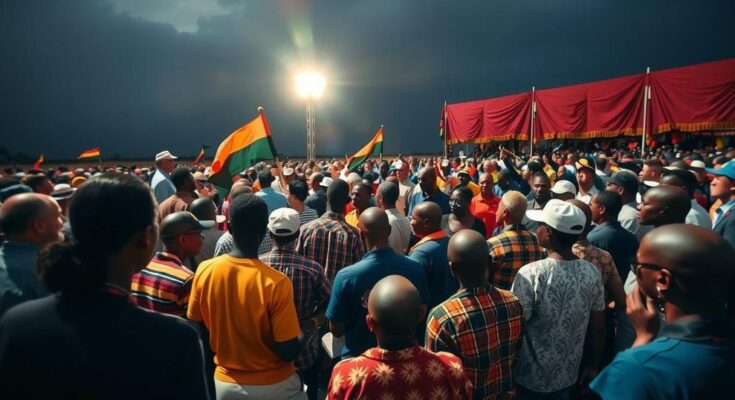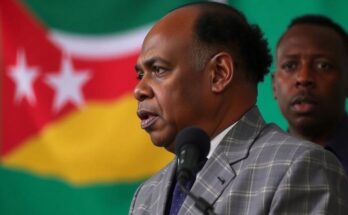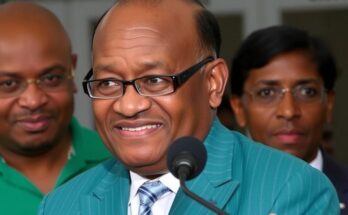Namibia’s opposition has urged the suspension of voting and ballot counting amid serious disruptions during the national election on November 28, 2024. Long lines and logistical failures delayed the election process, raising concerns about the electoral integrity. The opposition’s calls reflect growing discontent with the ruling SWAPO party’s governance, especially regarding unemployment and socioeconomic inequalities.
On November 28, 2024, Namibia’s opposition parties have formally requested the suspension of voting due to significant disarray that has marred the electoral process. The disruptions occurred as ballot counting was postponed amid severe logistical challenges and long delays. This national election, pivotal for the ruling South West Africa People’s Organisation (SWAPO) which has held power for 34 years, has ignited concerns over the validity and transparency of the process.
Polling stations remained open longer than scheduled due to a backlog of voters, leading to some individuals waiting overnight to cast their ballots. Reports suggested a mixture of polling stations either halting vote counting, continuing the voting process, or running out of ballots. Christine Aochamus, representative of the Independent Patriots for Change (IPC), stated, “We’ve got polling stations that are releasing results, we’ve got polling stations that are telling us that they were told to stop with the counting of votes.”
The opposition coalition is demanding that the Electoral Commission of Namibia (ECN) cease vote counting and suspend current voting, citing a lack of proper management. Voters have expressed their frustrations, exemplified by Reagan Cooper, who lamented, “The voters have turned out, but the electoral commission has failed us.”
The IPC, which has accused the ECN of attempting to undermine voter participation, asserts that the long queues reflect a strong desire among the populace for change, particularly as dissatisfaction with SWAPO’s governance grows amid high unemployment rates, especially affecting the youth. Analysts posit that the electoral environment, emphasized by the voters’ turnout, may pose a significant challenge for SWAPO’s presidential candidate, Netumbo Nandi-Ndaitwah, particularly as she may need to secure a majority to avoid a runoff.
Amidst these developments, with SWAPO’s governance enduring scrutiny over its management of the country’s resources and socioeconomic conditions, the electoral outcome may indicate a pivotal shift in Namibia’s political landscape.
Namibia has been under the governance of SWAPO since it gained independence from South Africa in 1990. This long-standing party has faced increasing criticism over issues such as unemployment and socioeconomic inequalities, particularly affecting younger populations. With the national elections occurring every five years, the 2024 elections signify a critical juncture for both the ruling party and opposition forces, providing citizens an opportunity to express their frustrations and aspirations.
The call for the suspension of voting by Namibia’s opposition highlights the significant logistical issues encountered during the recent elections, raising questions about the integrity of the electoral process. As the IPC and other parties vocalize their concerns, the future political direction of Namibia hangs in the balance, particularly against the backdrop of widespread dissatisfaction with the current administration and its handling of critical economic challenges.
Original Source: www.seychellesnewsagency.com




